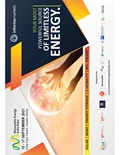
India has planned to increase the contribution of renewables to 40% by 2030. The lead-acid battery is the most widely adopted battery technology and has attained maturity where other technologies are still in the nascent stages
A webinar on Advance Lead-Acid Battery was organized by India Lead Zinc Association (ILZDA) supported by Hindustan Zinc in association with Indian Battery Manufacturers Association (IBMA) and India Energy Storage Alliance (IESA). The webinar underlined the imperative need of growing requirement of energy storage in the market.
Mr. L. Pugazhenthy, Executive director, India Lead Zinc Association said, “India consumes an estimated around 1 million tons of used lead-acid batteries for recycling economy each year and about 25-30% of this goes to the informal operators. Lead-acid batteries have the largest share; it is an energy source, affordable battery, and a dependable and reliable product. Batteries are used to store and supply electricity to electric vehicles, street lights, automotive, railway, inverters, telecom towers, and solar energy when grid power fails“.
Lead-acid batteries: The first battery technology used in energy storage
It is an extensively used energy storage system due to its proven safety, performance, low cost, and excellent recycling capabilities. Compared to other technologies, lead-acid battery is built to handle consistent load requirements in a very cost-efficient manner. As lead is 100% recyclable, the lead-acid battery is completely developed with a robust recycling capacity of more than 3 million pa in India. Lead-acid batteries can be found in a wide variety of applications, including small-scale power storage such as UPS systems, starting, lighting, and ignition power sources for automobiles, along with large, grid-scale power systems. They have a long lifetime and low costs compared to other battery types.
India is one of the highest consumers of Lead-acid batteries. Recycling of used Lead batteries is essential to ensure the need for sustainable development.
Energy conservation isn’t a new notion. Owing to concerns regarding the environmental impacts of fossil fuels and the capacity and resilience of energy grids globally, there have been some continuous efforts to fetch solutions on storing the energy. Energy storage has now become a necessity as it can address the irregularity of solar and wind power. It can also tackle the huge alterations in demand, aiding in making the energy grid more receptive and thus diminishing the need to build back up power plants.
Event Highlights:
The dignitaries present at the event were, Mr. Subhankar Chakraborty, Senior General Manager (R&D), Exide industries Ltd; Mr. Rahul Prithiani, Director, Credit Rating Information Services of India Limited (CRISIL); Dr. Alistair Davidson, Director, Consortium for Battery Innovation (CBI) and Mr. Amlan Kanti Das, Sr. Vice President-Battery Operations, R&D, Luminous Power Technology Pvt. Ltd. and Manoj Soni, VP, Business Excellence, Sustainable Operation & Technologies for Lead Processing, Hindustan Zinc.
According to India Energy Storage Alliance (IESA), the Indian energy storage market is expected to grow to 70 GW by 2022. Consequently, there is a vast scope for advanced storage technologies in the new applications, along with the opportunity for existing technologies. Lead acid batteries are the most used form of battery for most rechargeable battery applications.
Lead Storage Battery Advantages:
The lead acid battery has many advantages for automotive and many other uses: they have a large current and surge capability, which is ideal when being used to start internal combustion engines. Advance lead-acid battery as standalone or hybrid holds a crucial role in achieving India’s future energy needs as it is the most cost-effective and recyclable that will assist in India’s transformation in the renewable energy sector.
About ILZDA
ILZDA disseminates technical information on various applications of lead & zinc like galvanizing, die casting, lead batteries, zinc dry cells, alloys, chemicals as well as recycling through seminars, conferences, publications etc., focused on economic & efficient utilization, technology, markets, quality assurance, recycling, sustainable development etc., ILZDA regularly receives technical queries from the industry.
About Hindustan Zinc Limited:
Hindustan Zinc, a Vedanta Group Company, is one of the world’s largest and India’s only integrated producer of Zinc-Lead and Silver. The Company has its Headquarter at Udaipur in the State of Rajasthan where it has its Zinc-Lead mines and smelting complexes. Hindustan Zinc is self-sufficient in power with captive thermal power plants and has ventured into green energy by setting up wind power plants











